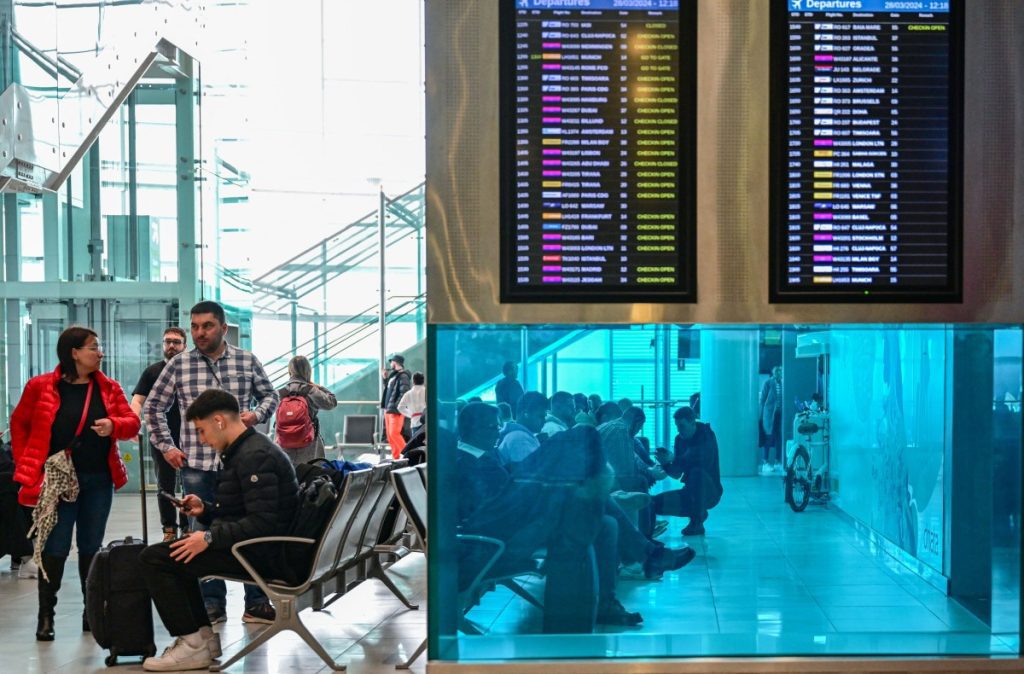After waiting for 13 years, Bulgaria and Romania will partially become part of Europe's Schengen area on Sunday, allowing travel by air and sea without border checks.
However, due to Austria's opposition, land border controls will remain in place for Bulgaria and Romania, as Austria is concerned about a potential influx of asylum seekers if the two countries become full members of the Schengen zone.
Even though it's only partial membership, the removal of controls at the air and sea borders of these two countries holds significant symbolic value.
Entry into Schengen is a significant achievement for Bulgaria and Romania, representing a matter of dignity and belonging to the European Union, according to foreign policy analyst Stefan Popescu.
Stefan Popescu, a foreign policy analyst, described Schengen membership as a crucial milestone for Bulgaria and Romania, symbolizing dignity and belonging to the European Union.
Ivan Petrov, a 35-year-old Bulgarian marketing executive residing in France, expressed excitement about the prospect of less stressful travel and the time that can be saved.
And they were 29
With the addition of Bulgaria and Romania, the Schengen zone will consist of 29 members, including 25 of the 27 European Union member states, as well as Switzerland, Norway, Iceland, and Liechtenstein.
According to the Romanian government, Schengen rules will apply to four seaports and 17 airports, with Romania's Otopeni airport near Bucharest serving as the main hub for Schengen flights.
The government stated that additional personnel, including border police and immigration officers, will be deployed to airports to assist passengers and identify those attempting to leave Romania illegally.
Authorities will also conduct random checks to uncover individuals using false documents and combat human trafficking, including the trafficking of minors.
Both Bulgaria and Romania aim to fully integrate into Schengen by the year's end, but Austria has only agreed to their inclusion by air and sea at present.
Croatia, which joined the EU after Bulgaria and Romania, became the 27th member of Schengen in January 2023, beating them to the achievement.
Formed in 1985, the Schengen area enables over 400 million individuals to travel freely within it, devoid of internal border controls.
‘Irreversible process’
While some have reason to celebrate, truck drivers dealing with long queues at borders with neighboring European countries feel excluded.
Earlier this month, a major Romanian road transportation association urged for urgent action to achieve full integration into Schengen as soon as possible, lamenting substantial financial losses due to prolonged waits.
“Romanian hauliers experience billions of euros in losses annually due to extended border wait times,” stated secretary general Radu Dinescu.
The union reported that truckers typically face wait times of eight to 16 hours at the Hungarian border and 20 to 30 hours at the Bulgarian border, with peaks of three days.
Bulgarian businesses have also expressed frustration about the slow progress.
Vasil Velev, president of the Bulgarian Industrial Capital Association (BICA), highlighted that only three percent of Bulgarian goods are transported by air and sea, with the remaining 97 percent being transported by land.
He told AFP that they are currently at three percent in Schengen and are uncertain about when they will reach the remaining 97 percent.
Both Bucharest and Sofia have stated that there will be no reversal of their decision.
Romanian Interior Minister Catalin Predoiu stated that there is no doubt that this process cannot be reversed and emphasized the need to finish it by 2024, including extending it to land borders.
AFP



